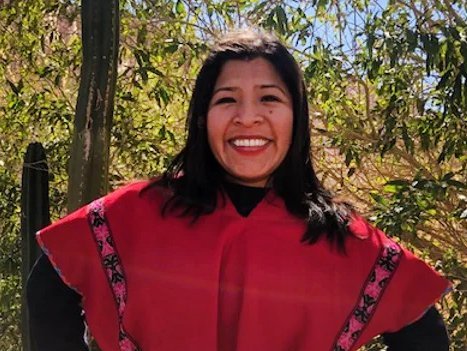Indigenous Studies Researcher Advises the UN on Inequalities in Food Security and Nutrition
Huambachano, an Indigenous scholar and current Humanities Center Faculty Fellow, is also co-hosting this spring's JK Watson Distinguished Visiting Professor in the Humanities mini-residency by Māori scholar, Krushil Watene.

Mariaelena Huambachano
"Not everyone considers the whole value of food," says Mariaelena Huambachano. "It is something many of us buy and consume so easily, but in addition to nutrition, food also links us to traditions, history, cultural heritage, memories, sentiments and feelings, especially for Indigenous Peoples."
Mariaelena Huambachano is an Indigenous scholar, native to Peru, with Quechua ancestry, who also lived for many years in Aotearoa, the Indigenous name for New Zealand. There she completed her undergraduate and graduate studies and formed long-lasting relationships with Māori, the Indigenous people of New Zealand. She joined Syracuse in 2021 as assistant professor to help build the Global Indigenous Cultures and Environmental Justice Center (CGIC). She teaches courses on Food Fights and Treaty Rights, Indigenous Food Cosmologies and Reclaiming Indigenous Intellectual Sovereignty. She is a faculty affiliate across several programs and departments, including the Moynihan Institute of Global Affairs, Department of Women’s and Gender Studies, Democratizing Knowledge Collective and the Program on Latin America & the Caribbean.
Food is often seen as a basic human right, but millions do not have food security because of factors like poverty, lack of access to affordable and nutritious food, inadequate social safety nets and environmental challenges. This is worse for vulnerable and marginalized people, like many Indigenous communities around the world. A&S' Professor Huambachano is serving on her second United Nations (UN) High-Level Panel of Experts (HLPE) on Food Security and Nutrition (HLPE), providing evidence-based recommendations to policymakers. She calls this her “labor of love." (Read the full A&S News article.)
